Project-based activities showed campers why native plants are vital to the ecosystem.
By Jo Mathis/AAPS District News Editor
Exciting things are happening at AAPS Environmental Education, which since 1960 has been educating and inspiring students through meaningful learning experiences in the natural environment.
For the first time this year, EE offered two one-week sessions of A2 Nature Guardians—a full-day camp for children 7 to 10. The camp was held at the Freeman Environmental Education Center, a 40-acre site at owned by AAPS that houses the Environmental Education Program office and is used for field trips and other educational activities.
Offering a place-based stewardship education summer camp at Freeman was one of the short-term recommendations of the Freeman Environmental Education Center advisory committee.
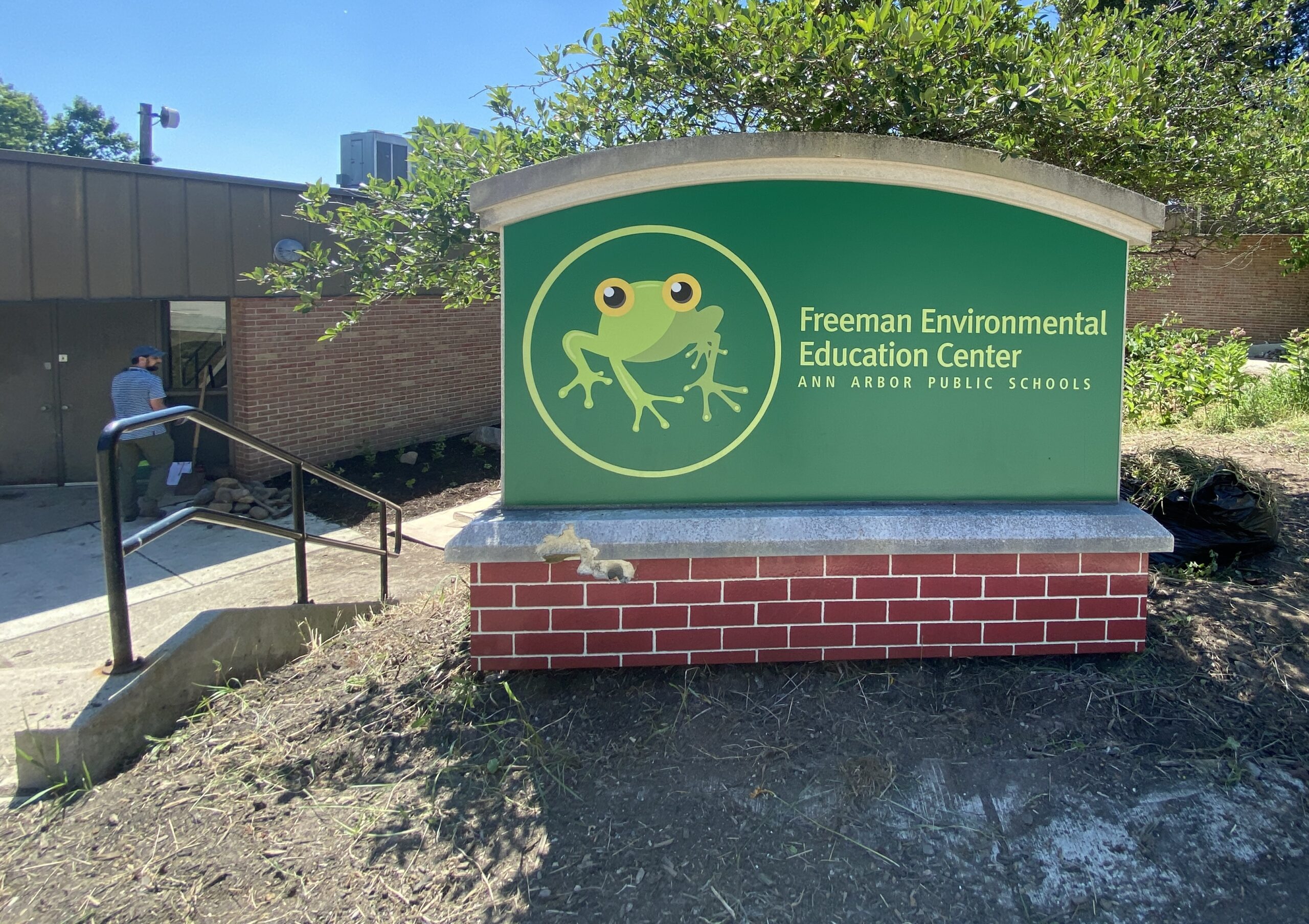
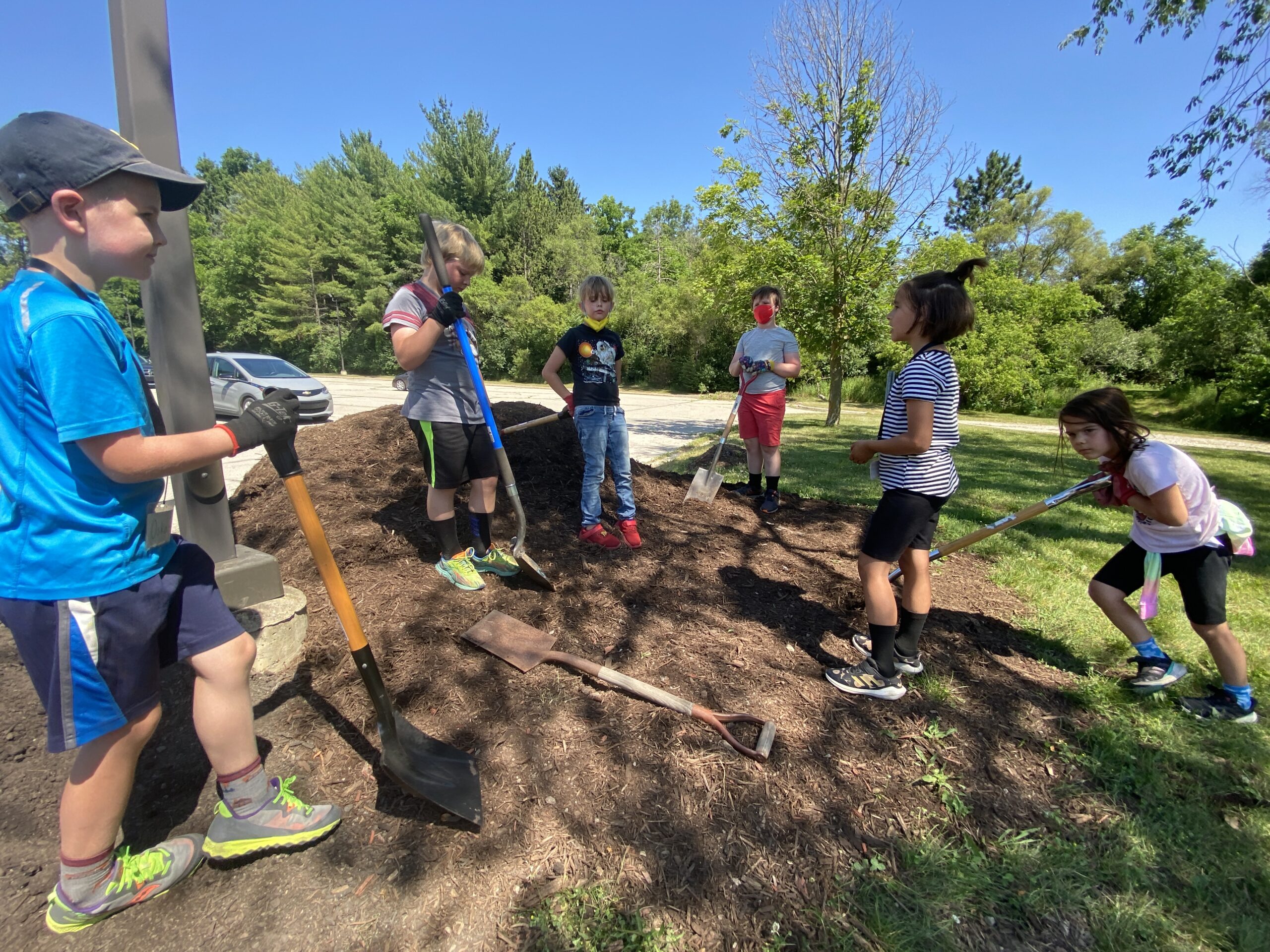
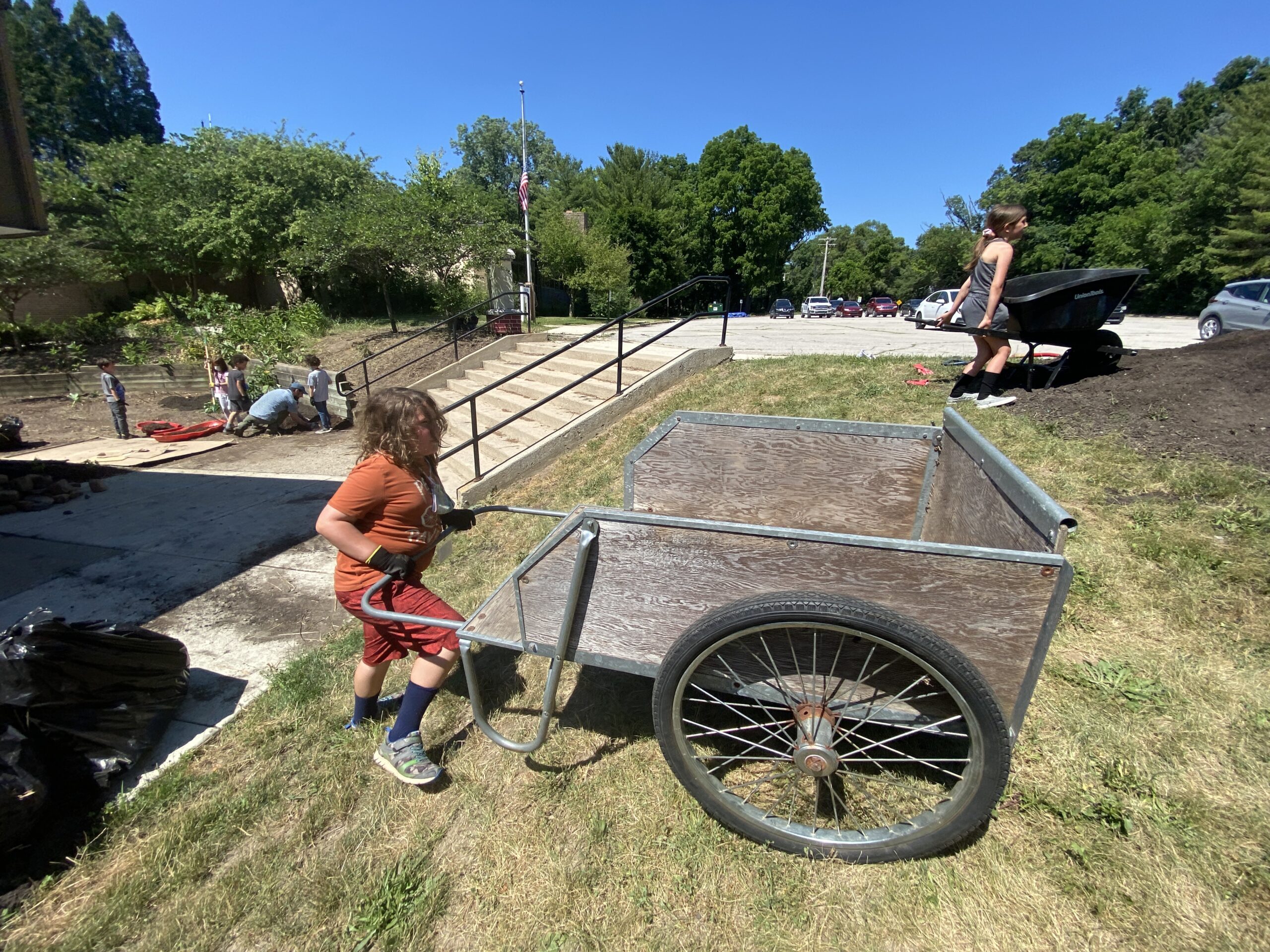
“We are so happy to begin offering this program this summer and to have campers utilizing the grounds and indoor facilities,” says Coert Ambrosino, Environmental Education teacher.
Ambrosino says it was great to expose students to new information about the world in which they live, and to do it in a contextualized way with hands-on projects where they’re literally digging in and getting their hands into the soil.
The camp curriculum consisted of a number of project-based and experiential elements, with the majority of the camp day outdoors. Two rotations in the “project time” made up the majority of the morning. One rotation focused on a renovation of the front courtyard of the Freeman EE Center, including the replacement of ornamental and undesirable plant species with native flowers, grasses, and shrubs.
Campers measured and diagramed the garden beds, assessed light and moisture levels, and created their own garden designs. Then they worked to remove existing plants, grade the soil and apply compost/soil and mulch. At the end of the week, they saw their planning and effort come to fruition as they plant the seedlings into their new home.
“Our courtyard project is sort of the first thing people see when they visit the Freeman Center,” he says. “And it was a pretty traditional planting and was definitely overgrown and needed some attention. And so we’ve done a lot of weeding. We’ve taken out some invasive plants and then even removed just some of the ornamental plants that were in that garden in order to make space for the native flowers, grasses, and shrubs that are going into the garden. Many of these plants were grown right here at the Freeman Center. Our high school leadership group—the Freeman Environmental Youth Council—helped us grow those plants this year, and I think we grew upwards of four to 500 seedlings in addition to about 80 tree saplings this year.”
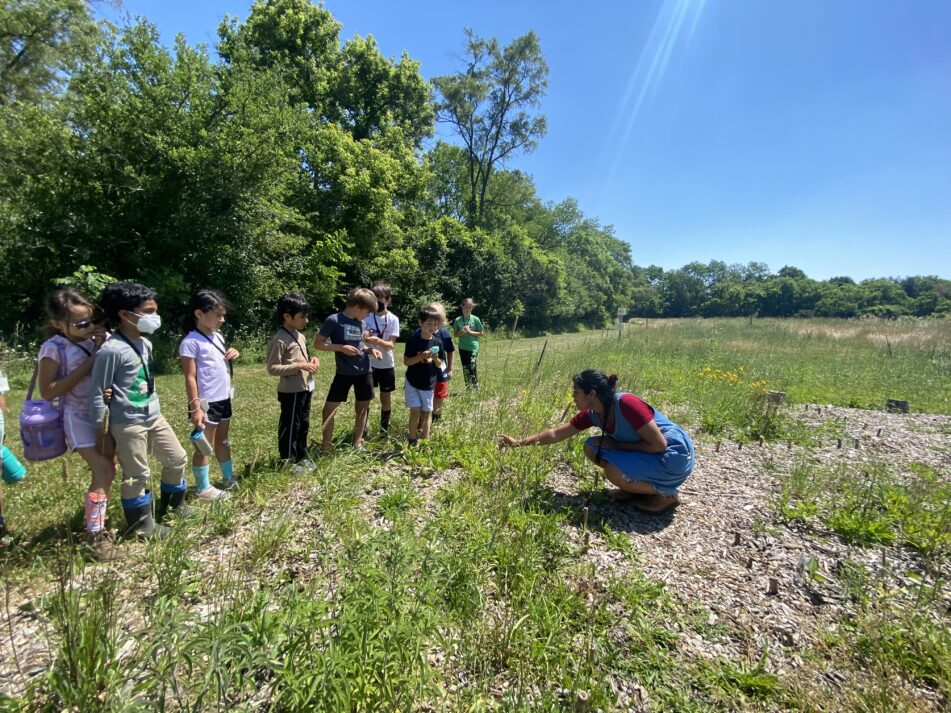
“We’re hopeful that in a few years it’ll be full and mature and really supporting a lot of Michigan wildlife because we know there’s Michigan native plants that have been here for so long and that our Michigan creatures need for food and shelter and other habitat services.”
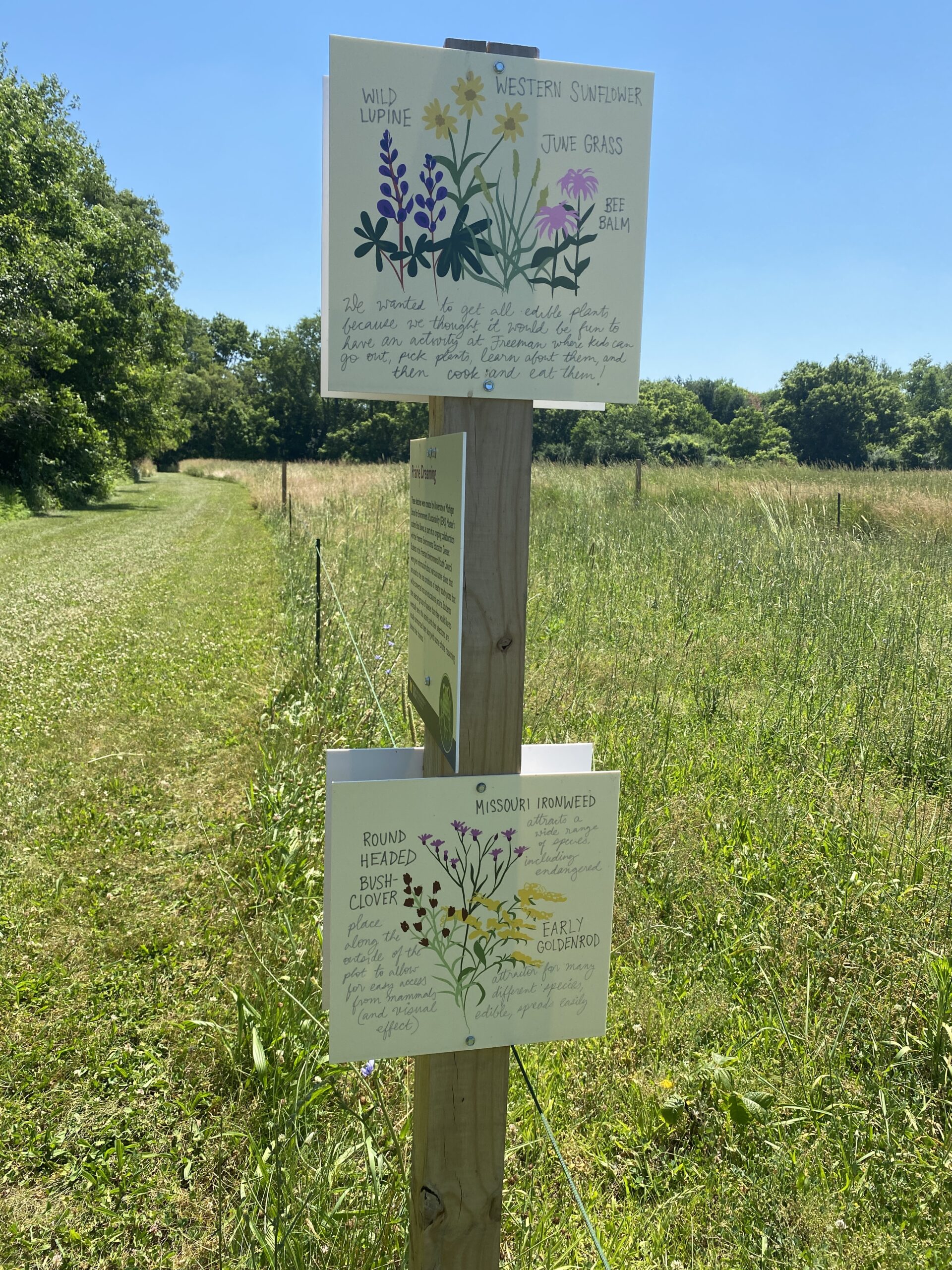
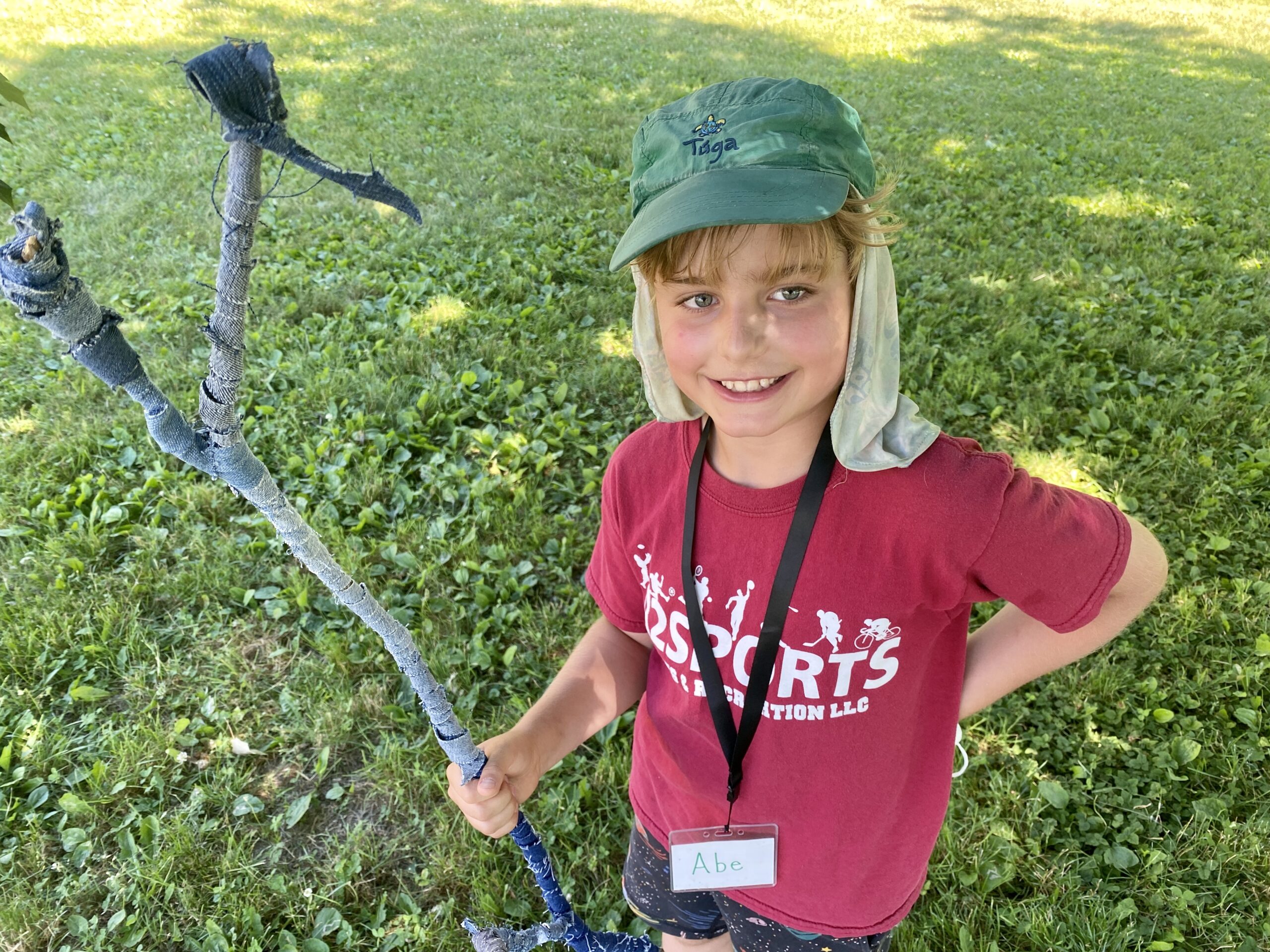
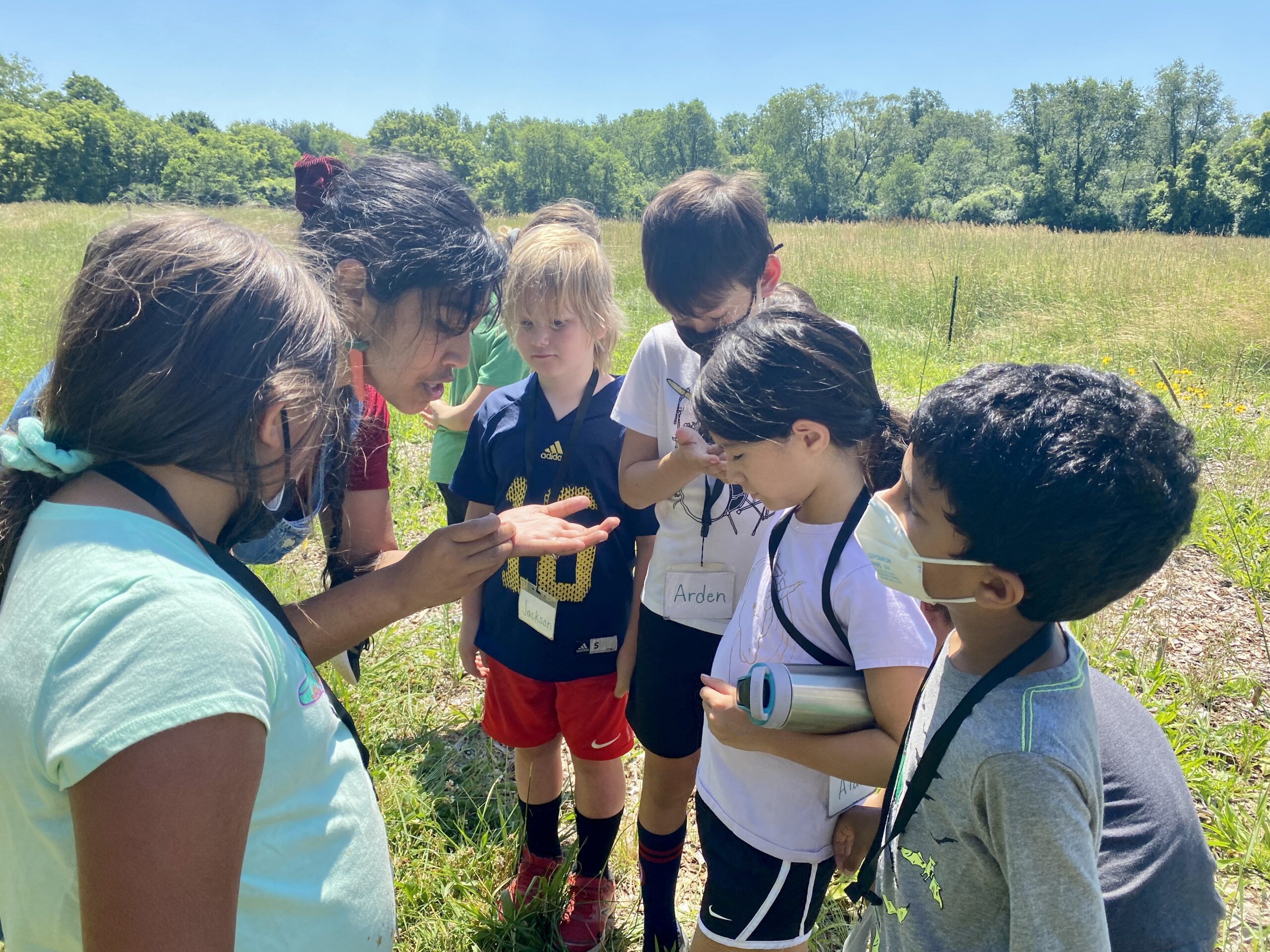
During the second rotation of project time, which was planned and led by Environmental Specialist Esha Biswas, campers expanded their knowledge of native plants by learning about the prairie restoration project and exploring the amazingly long structure and function of prairie plant roots. They tasted test root vegetables, dug up plants to investigate their root systems, and helped design and create a temporary art installation to represent their learning about plant roots. The final product will hang from the pergola area: upside-down branches wrapped in strips of salvaged denim.
In addition to morning meetings, snack breaks, and lunch, free play, quiet time, and closing circle, there are two other main activities each day. During afternoon activity time campers played nature and sensory games in the woods and fields of Freeman, such as ‘Predator-Prey’, blindfold games, “sit spots”, and a scavenger hunt. Near the end of the day, students worked in pairs to create their own nature-based board games. This activity was planned and led by Nate Hatt, whose school year role is Project-based learning coordinator at A2STEAM.
Program Manager Holly Klotz says the A2 Nature Guardian Camp helps fulfill Rec & Ed’s mission to promote learning outside of the formal classroom and to provide opportunities for students to connect, learn, and stay active within the AAPS community.
“The best thing about our camps is that the kids are having so much fun that they don’t even realize how much they’re learning,” says Klutz. “Each curriculum includes activities that spark curiosity and imagination using an experiential, hands-on learning approach. Also, we have many campers who form friendships that cross school lines—friendships that may never have formed otherwise. In these ways, our summer camps help fulfill Rec & Ed’s mission to promote learning outside of the formal classroom and to provide opportunities for students to connect, learn, and stay active within the AAPS community.”
It is expected that A2 Nature Guardians Camp will be offered again next summer.

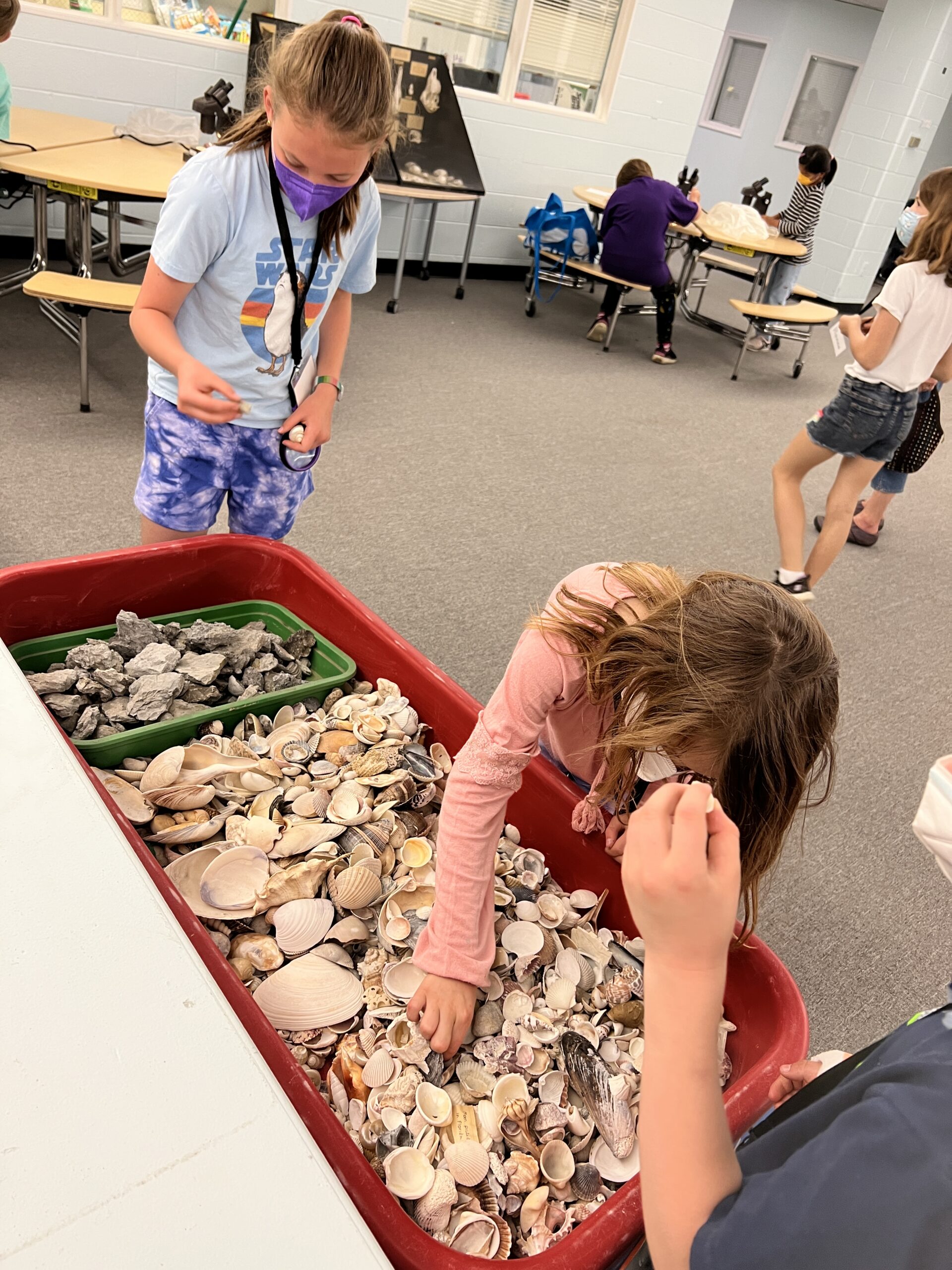
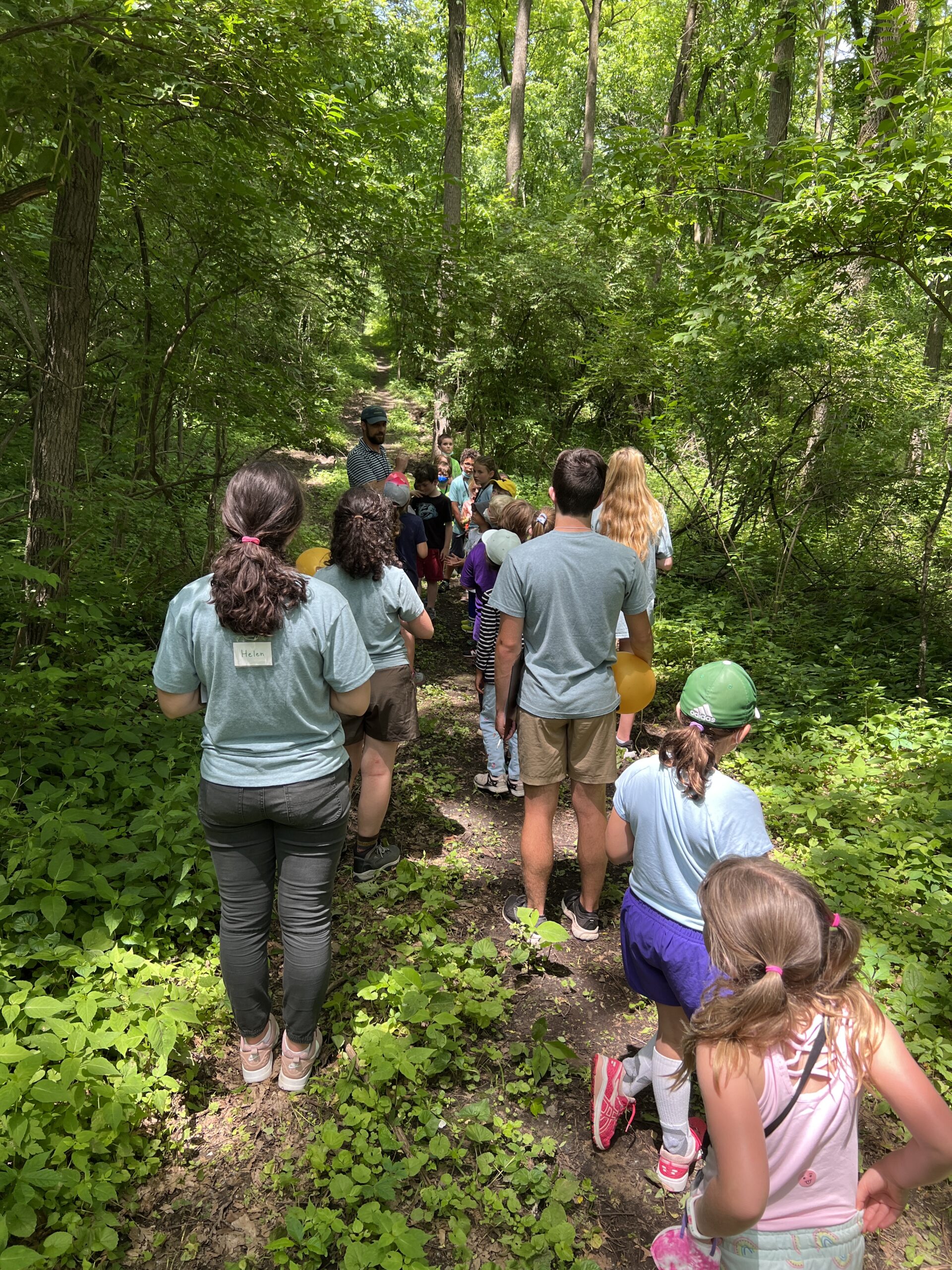
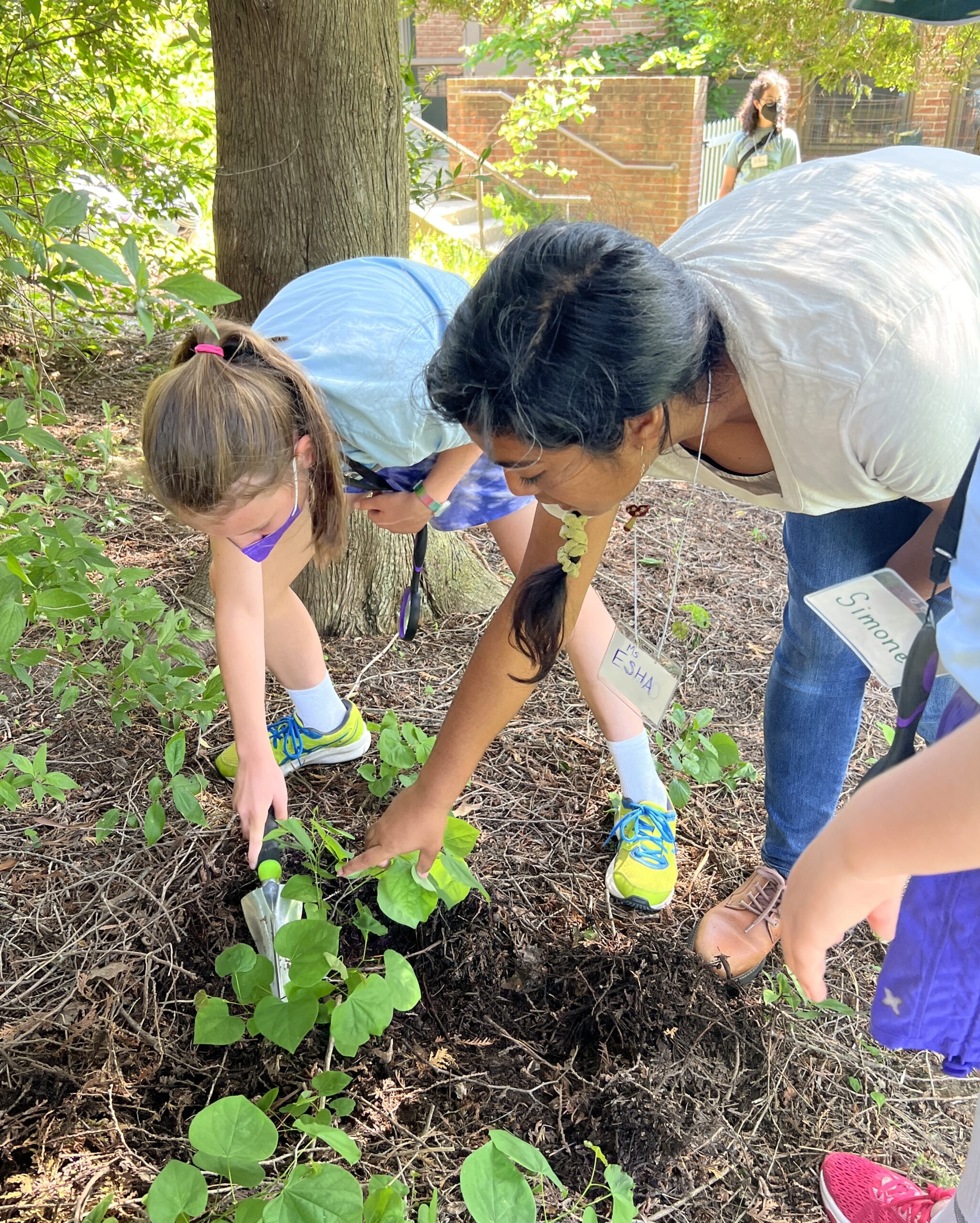
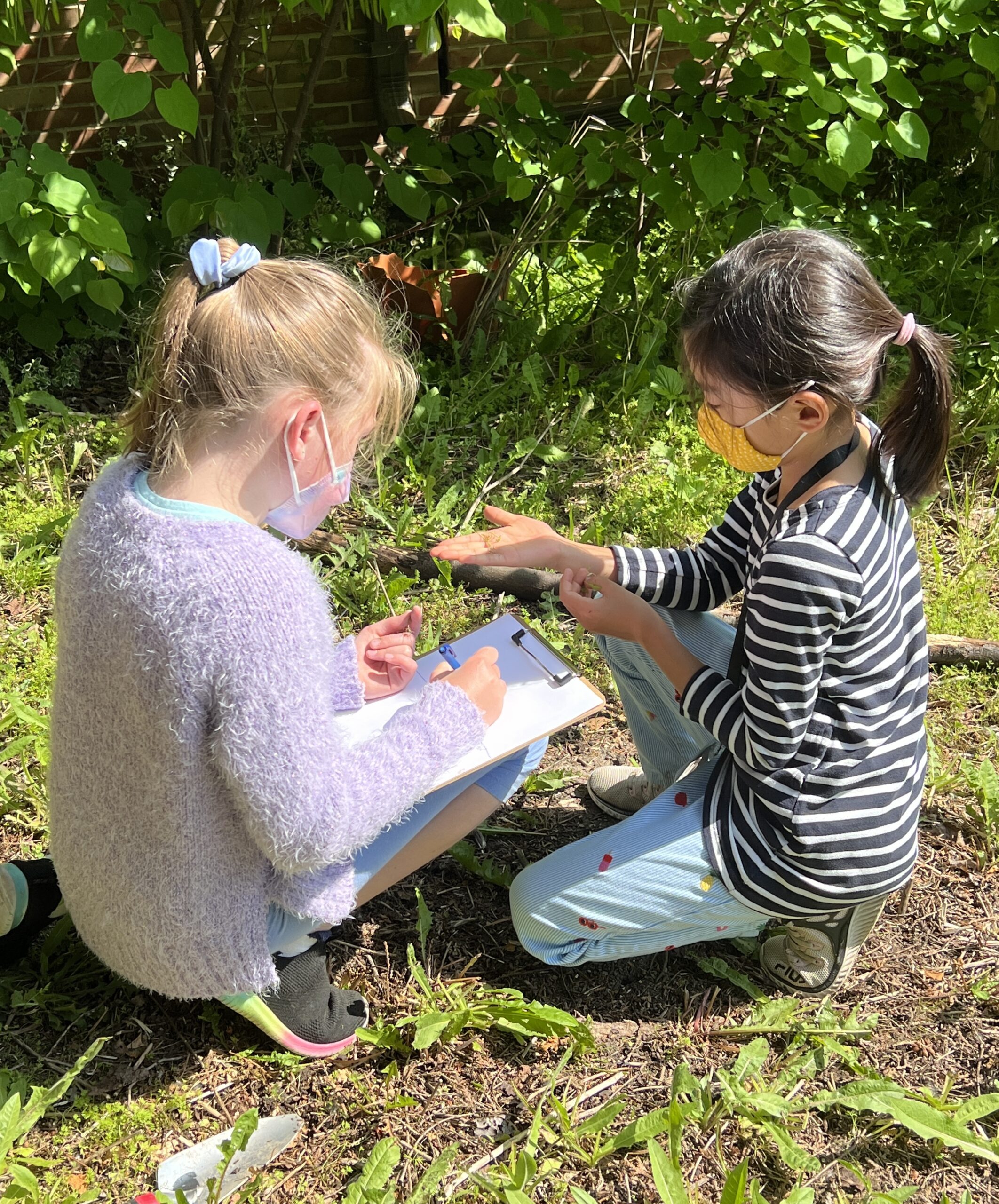
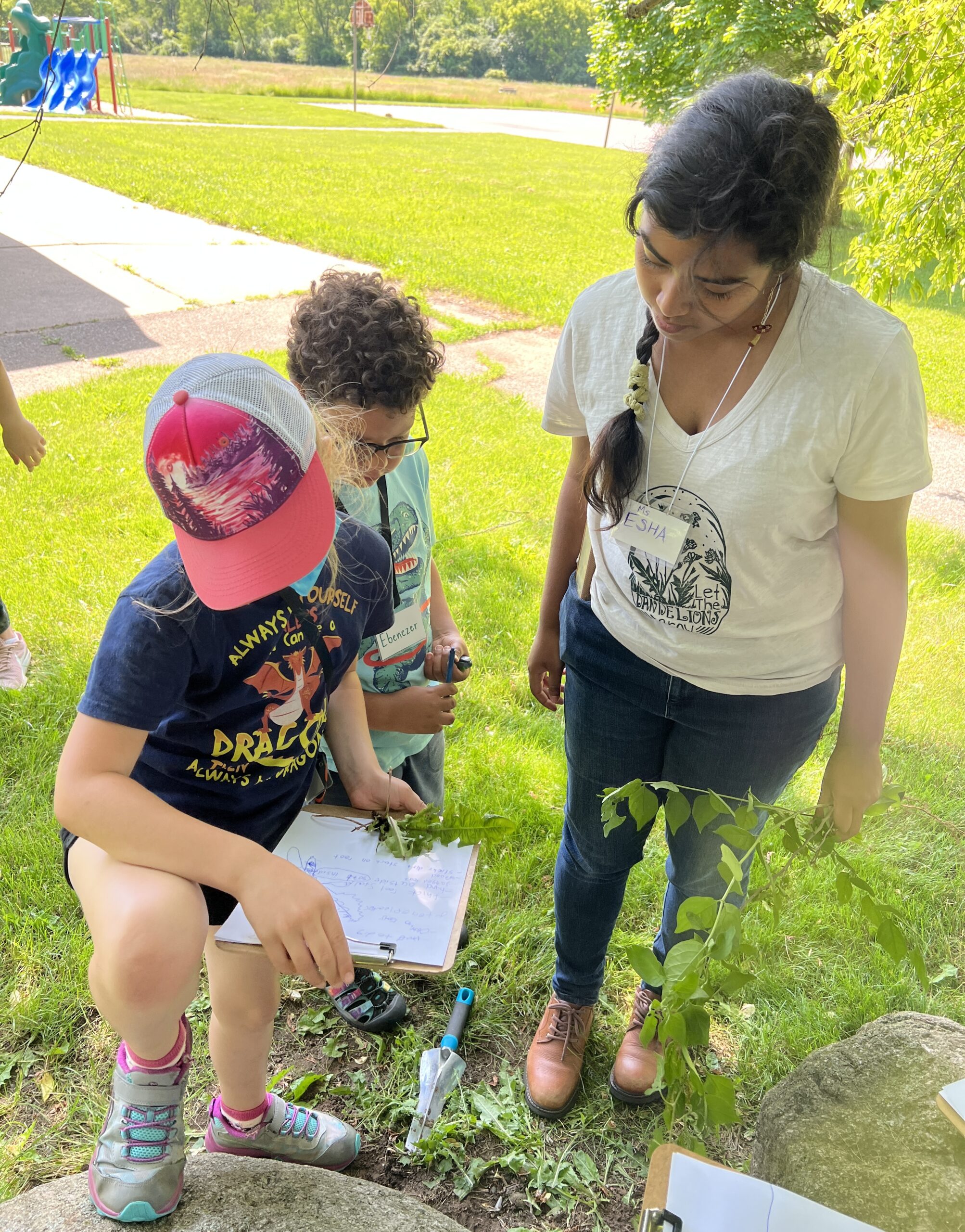


Be the first to comment